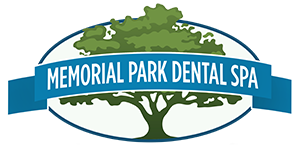EDS / Ehlers Danlos Syndrome

What Is EDS?
EDS is caused by abnormalities in collagen, a protein that provides strength and elasticity to connective tissue. Since collagen is found in gum tissue, ligaments, and even the jaw joint (TMJ), individuals with EDS often experience unique challenges in oral health and dental procedures.
There are many subtypes of EDS, with hypermobile EDS (hEDS) and classical EDS (cEDS) being most frequently encountered in dental settings. Some rarer forms, like vascular EDS (vEDS), carry more serious risks such as fragile blood vessels that can complicate surgical procedures.
Oral and Dental Manifestations of EDS
Patients with EDS may present with the following dental and oral symptoms:
- Fragile gum tissue that tears or bruises easily
- Chronic gum inflammation or periodontal disease despite good oral hygiene
- Hypermobile temporomandibular joints (TMJ) leading to jaw pain, clicking, or dislocation
- Increased tooth mobility and delayed eruption
- Root and crown abnormalities (in some types)
- Poor wound healing after dental extractions or surgery
- Easy bruising and bleeding during routine dental procedures
These symptoms vary depending on the type and severity of EDS, but they all require tailored dental care to ensure patient safety and comfort.


Considerations for Dental Treatment
Dentists treating patients with EDS should take the following precautions:
- Gentle handling of tissues: Use extra care during cleanings and procedures to avoid trauma to fragile gums and mucosa.
- Avoid overstretching the jaw: Joint hypermobility can lead to TMJ dislocation or strain.
- Longer healing times: Post-surgical healing may be slower, so follow-ups are critical.
- Caution with anesthetics: Some patients with EDS may have unpredictable responses to local anesthetics and may require adjustments.
- Bleeding management: Be prepared for increased bleeding due to fragile capillaries and tissues.
Clear communication between the dental team and the patient is essential. A thorough medical history should include diagnosis of EDS and any related conditions like POTS (postural orthostatic tachycardia syndrome) or MCAS (mast cell activation syndrome), which may also affect dental care.
We provide compassionate, personalized dental care for patients with connective tissue conditions. Let us know about your diagnosis so we can ensure a safe, supportive experience at every visit.
Meet Your Award-Winning Dentists in Houston, TX
The Proof is in Our Patients
Madison W.
Sophy C.
Monica C.
Specials and Offers
Location and Direction to Memorial Park Dental
Address
Phone
Working Hours
- Mon-Tue: 11 AM - 7 PM Wed: Closed Thu-Fri-Sat: 7 AM - 3:30 PM




